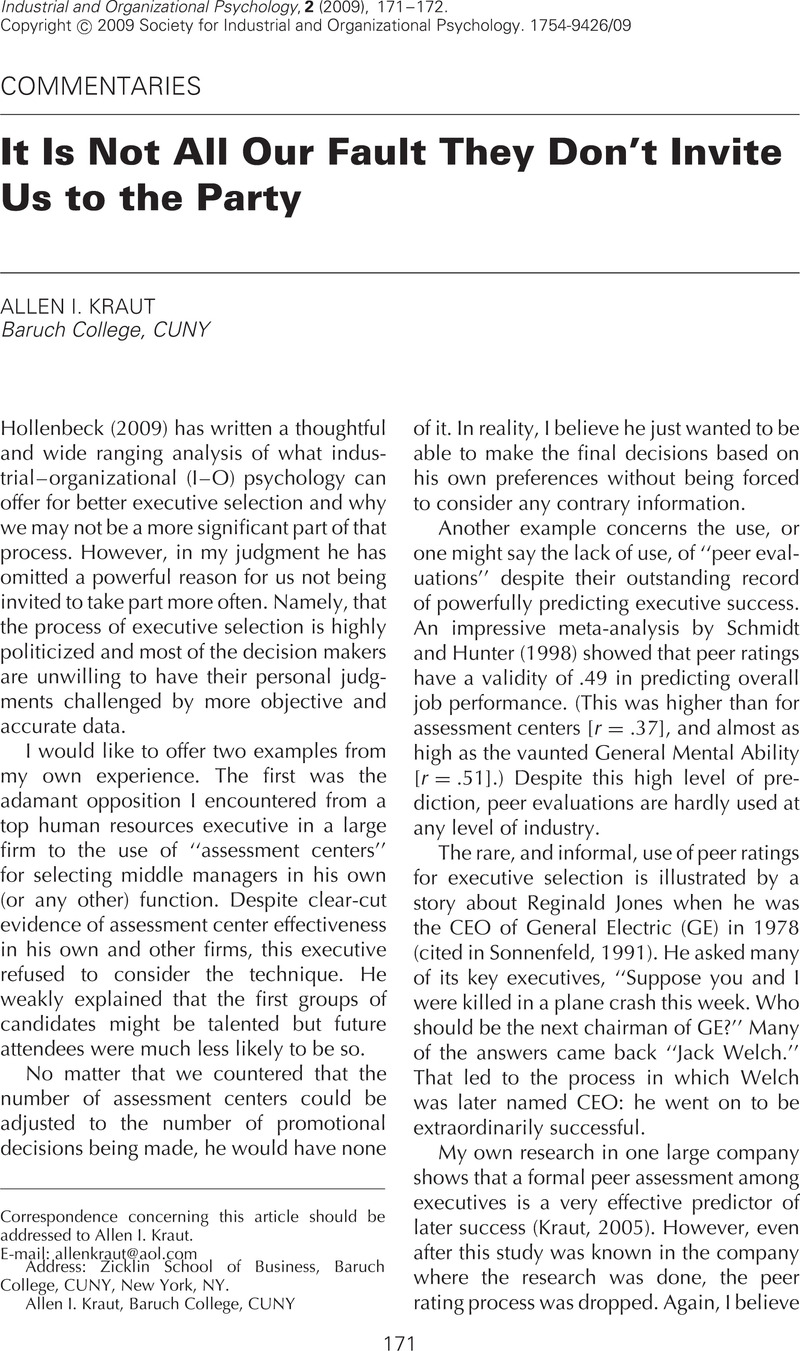Crossref Citations
This article has been cited by the following publications. This list is generated based on data provided by Crossref.
Hollenbeck, George P.
2009.
Executive Selection — Response to Commentaries.
Industrial and Organizational Psychology,
Vol. 2,
Issue. 2,
p.
177.
Klehe, Ute-Christine
2011.
Scientific Principles Versus Practical Realities: Insights From Organizational Theory to Individual Psychological Assessment.
Industrial and Organizational Psychology,
Vol. 4,
Issue. 3,
p.
311.



